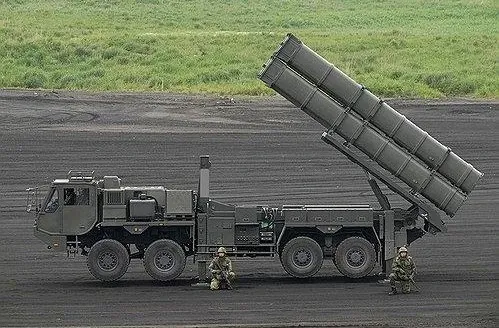Is Japan's Plan to Deploy Enhanced Anti-Ship Missiles a Provocation?

Synopsis
Key Takeaways
- North Korea criticizes Japan's military buildup.
- Deployment of Type-12 missiles in Kumamoto.
- Missiles have a range of 1,000 kilometers.
- Japan aims to deter Chinese aggression.
- KCNA warns of potential consequences of Japanese militarization.
Seoul, Aug 4 (NationPress) North Korea has vocally criticized Japan in light of reports regarding a potential deployment of upgraded surface-to-ship missiles in the coastal region of Kumamoto Prefecture, which is situated near China. This move comes as Tokyo seeks to bolster its defensive capabilities.
The Korean Central News Agency (KCNA) expressed its discontent following a recent report indicating that Japan's defense ministry is in the final stages of planning to station domestically produced Type-12 anti-ship missiles at Camp Kengun in Kumamoto during the current fiscal year, which ends on March 31.
These missiles boast a range of 1,000 kilometers, enabling them to strike targets along China's coastline. The intended deployment is seen as a measure to deter Chinese aggression, with considerations also being made for the placement of these missiles in Okinawa Prefecture, according to the report.
The KCNA contends that this move is aimed at enhancing Japan's preemptive strike capabilities, aligning with the nation's aspirations reminiscent of the imperial-era "Greater East Asia Co-Prosperity Sphere, rather than responding to any specific threat.
"Through military expansion and reorganization, along with modernization initiatives, Japan is inching closer to a scenario where it can initiate an invasion," stated the KCNA, referencing the 2022 amendments to its National Security Strategy and the recent establishment of the Joint Operations Command.
The KCNA characterized Japan as being "obsessed with becoming a military power," accusing it of hastening towards a future of reinvasion by deploying long-range missiles designed for preemptive strikes.
"The day of reinvasion that Japan is now so desperately seeking will be the day it steps into an irrecoverable hell," the KCNA cautioned.
In a related note, on August 2, North Korea condemned recent military exercises conducted by the US alongside South Korean and Japanese forces, alleging they are preparations for "preemptive strikes" against the North, as reported by Yonhap news agency.
The Rodong Sinmun, North Korea's primary newspaper, echoed this sentiment in an article criticizing US-led air drills that commenced last month near Japan and recent logistical exercises between South Korea and US Marines.









